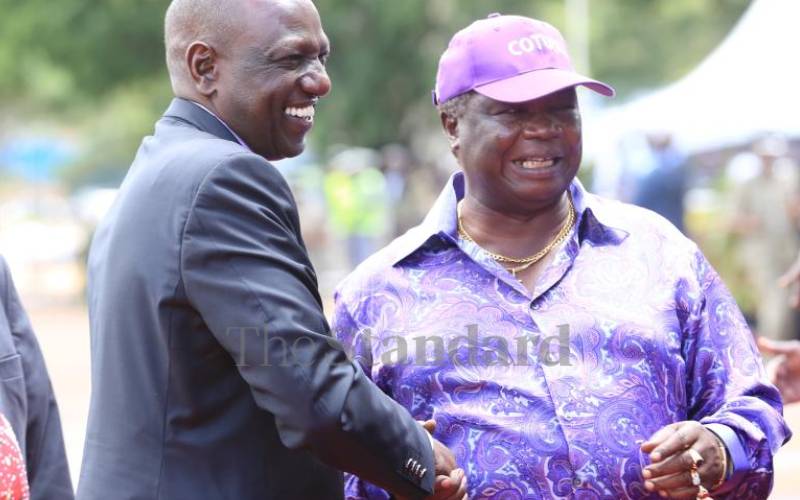×
The Standard e-Paper
Fearless, Trusted News

DP William Ruto (left) and COTU secretary-general Francis Atwoli during Labour Day celebrations, Uhuru Park, Nairobi, May 2017. [Beverlyne Musili, Standard]
Deputy President William Ruto has been at the centre of a controversy involving Cotu Secretary General Francis Atwoli.